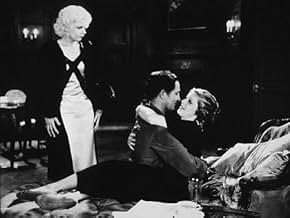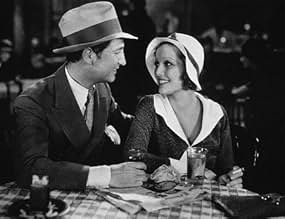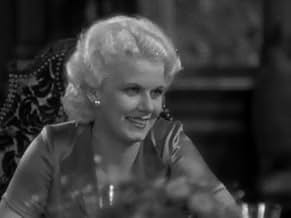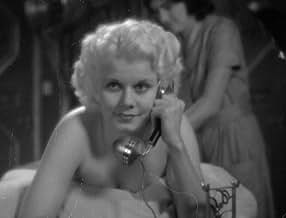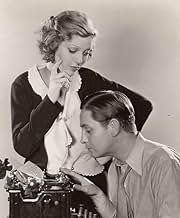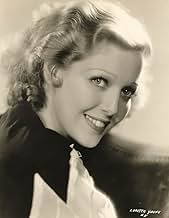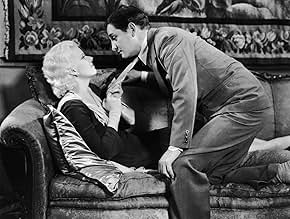Un journaliste est sollicité par une riche famille pour redorer son image, ternie par la presse à scandale. Il accepte la mission et tombe amoureux de la fille de ses employés. Mais, il s'ad... Tout lireUn journaliste est sollicité par une riche famille pour redorer son image, ternie par la presse à scandale. Il accepte la mission et tombe amoureux de la fille de ses employés. Mais, il s'adapte mal au mode de vie de la "haute société".Un journaliste est sollicité par une riche famille pour redorer son image, ternie par la presse à scandale. Il accepte la mission et tombe amoureux de la fille de ses employés. Mais, il s'adapte mal au mode de vie de la "haute société".
- Réalisation
- Scénario
- Casting principal
- Récompenses
- 2 victoires au total
- Michael Schuyler
- (as Donald Dillaway)
- Dawson - The Valet
- (as Claude Allister)
- Butler
- (non crédité)
- Reporter
- (non crédité)
- Hank - A Reporter
- (non crédité)
- Speakeasy Proprietor
- (non crédité)
- Reporter
- (non crédité)
- Ann's Beau - The Round-the-World Flyer
- (non crédité)
- Party Guest
- (non crédité)
- Reporter
- (non crédité)
Avis à la une
Williams proves himself to be a winning and engaging comedian in this very funny Frank Capra film about a reporter (Williams) who marries a society dame (Jean Harlow) only to realize that his true love is for the female co-worker (Loretta Young) who's been by his side the whole time. Never mind that Young is one hundred times more feminine and prettier than Harlow -- I just chalk it up to the theory that Harlow had a certain look that was very much in vogue in the 1930s and that made her extremely attractive to people.
I don't think Harlow is at all attractive, but I do see her appeal, and I didn't find her performance to be as bad in this film as the history books have claimed. It's true that the casting should have been reversed, and Young should have played the society belle with Harlow as the working-class girl next door. But never mind. She equips herself pretty well with the material given her, and she manages to be believable in the role.
But in any case, it's neither of the women you'll remember from this movie. It's Williams and his absolutely fantastic way with a funny line. He died of appendicitis at the age of 37, and it's clear that 30s movie audiences lost a potentially major star when they lost him.
Grade: A-
The movie itself, though hard to separate from Williams's domination of it, stands up fairly well on its own. There are some imaginative camera movements and setups and intelligent, witty dialogue laced with fizzy Depression-era argot. The story is not very convincing but you suspend disbelief because of the way the actors, dialogue and cinematography bring it to life. The pace is leisurely, sometimes a bit too much so, with many minutes taken up in gentle, playful, ultra-naturalistic banter between Williams and his co-stars. I can't think of another film from that period that detoured so often into that type of throwaway conversational interlude.
Jean Harlow as the heiress and Loretta Young as a newspaper columnist are not ideally cast. Their roles should have been reversed, but it doesn't really matter because both actresses do well. Harlow, who by this time had had relatively little experience in front of a camera, seems right at home about 90% of the time. And it's hard to believe that Loretta Young was only 18 when she made this! But she had already been a veteran of several years standing as a film actress.
The Platinum Blonde is of course Jean Harlow and this film title gave her the title she would have the rest of her short life. She's a society girl who sweeps reporter Robert Williams off his feet and into marriage much to the chagrin of her formidable dowager mother Louise Closser Hale.
Someone else is chagrined as well, Loretta Young who was only 18 when she made this film. Loretta and her sisters added a few years onto their ages in order to work back then. Loretta plays one of Williams fellow reporters who is known only by her last name of Gallagher. Just like Jean Arthur was known as Saunders in Mr. Smith Goes To Washington. Lots of similarities between the two though Arthur's character was far more sophisticated than Young.
Still Platinum Blonde more closely resembles Mr. Deeds Goes To Town. Williams is like Gary Cooper trapped in that big mansion. Only it was Cooper's own mansion that he inherited. Robert Williams is in on a pass and on a kind of probation so to speak, to see if he can adjust to life among the idle rich. In 1931 lots of people would have liked to have been given the opportunity.
The only one in the household he strikes up some kind of friendship with is butler Halliwell Hobbes. Note the echo business with them, it would be repeated in Mr. Deeds.
The week Platinum Blonde was released with reviews acclaiming Williams as a new star, he died of peritonitis. What an incredible loss, he was an actor with a breezy insouciance just like Robert Montgomery or William Haines over at MGM. He probably could also have done parts at Columbia that James Cagney was doing at Warner Brothers. Williams could have been Harry Cohn's first major star of the sound era. Anyway his comic timing was perfect and he steals the film from those two movie legends who were his leading ladies.
You'll also like Reginald Owen's portrayal as Harlow's family attorney and general busybody. Williams also deals with him in the way Gary Cooper ultimately dealt with his shyster.
Platinum Blonde is one of Frank Capra's best early films and watching it will make you sad though when you see Robert Williams and you will agree that he had a brilliant career ahead of him.
Le saviez-vous
- AnecdotesIn a 2008 interview, actor Christopher Plummer called Williams "...one of the most realistic comedians the screen had. He made Cary Grant look like he was overacting... To watch Robert Williams act was like seeing a comic using the Method, long before the Method became famous with Marlon [Brando] (Marlon Brando) and Monty [Clift] (Montgomery Clift)."
- GaffesWhen they are looking at the front page of "The Tribune Paper", in the headlines, the word "okay" is misspelled. It shows "It's okey with me."
The spelling of "OK" was not standardized for a long time. Writer Dashiell Hammett among others spelled it "okeh" and "oke",
- Citations
Dexter Grayson: Where were you yesterday?
Anne Schuyler: Oh, Stew and I went for a long ride. Dexter, is there any finishing school we could send him to?
Dexter Grayson: Yes - Sing Sing!
- ConnexionsEdited into 365 days, also known as a Year (2019)
Meilleurs choix
- How long is Platinum Blonde?Alimenté par Alexa
Détails
Box-office
- Budget
- 600 000 £GB (estimé)
- Durée
- 1h 29min(89 min)
- Couleur

